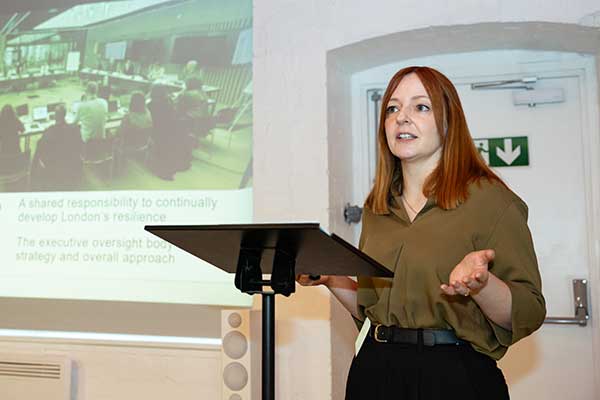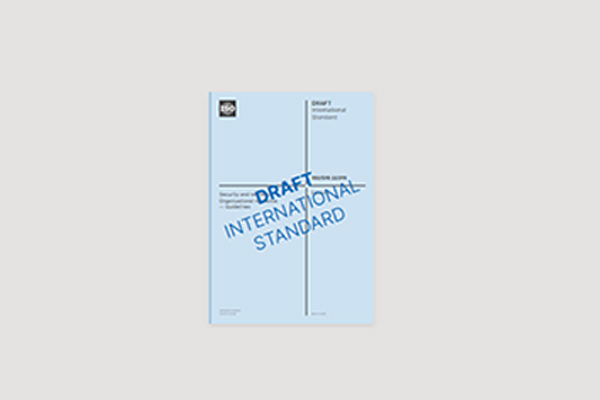Resilience First was delighted to welcome CBI President and Chair of Tesco and Barratt Development, John Allan CBE, to speak on leadership in resilience at our latest members’ event.

John Allan CBE
Leadership in resilience
It was 15 to 20 years after I first sat on a board that I started to hear the word resilience used at that level.
It’s worth examining what we mean by resilience. It has a technical definition in physics and material science: “the ability of a substance or object to spring back into shape”.
Human beings are considerably more complex than substances, and an important distinction is not to bounce back but to adapt. This definition admits the possibility that after recovery the person may have changed.
And the same is true when we talk about organisational, institutional or community resilience.
My own definition of resilience is the process of adapting well in the face of adversity, trauma, tragedy, threats or significant sources of stress.
We tend to think of resilience in relation to traumatic, sudden events. An example of that is Brexit. Crashing out of the EU without a deal would be quite a traumatic event, and I know there is lots of planning going on for that scenario.
Everyone is spending so much time thinking about March 30 but I wonder how much thought is going into the longer-term implications.
Longer-term adaptation is something businesses and other organisations need to focus on: if there is a no-deal Brexit, we will need time to adapt to the implications of that.
An important component of creating resilience for organisations is understanding and managing risk. It is vital to ensure that they are ready to face potential challenges and can weather future storms. The challenges facing business are pretty clear, but they keep evolving.
Resilience is a priority – and it requires thoughtful and committed leadership, planning, innovation and specialist skills.
Companies have well developed mechanisms for identifying and mitigating risk.
And over time, companies have come to realise the potential impact of poor or inadequate risk management.
Some of the most devastating failures in recent years have been reputation-impacting risks: often stemming from corporate or individual misbehaviour.
Corporate leaders have a vital role to play in this respect: we know the reputation of business is not as high as we would want it to be.
We need the highest standards of personal and corporate behaviour.
We need to have a proactive approach to investing in our people, which will also increase their personal resilience and their ability to contribute to raising corporate resilience.
Companies also need to be prepared to work together. Many risks can only, or much more effectively, be handled through collective action.
And, of course, the same is true of communities, whether they are local, regional, national or multinational.
I believe business has a major contribution to make towards improving community resilience and should feel a moral imperative to do so. Nine out of 10 people want business leaders to take a proactive stance in relation to hard to crack social issues.
An example of this is business and schools.
Both can benefit immensely from working together in helping young people to understand, prepare for and access the world of work.
Businesses can benefit from a supply of young recruits that they can secure cost effectively. Schools can benefit from the ability of business to provide higher quality careers advice and, most important of all, the young people concerned have reduced risk of becoming NEETs – not in education, employment or training – and of falling into an antisocial life style.
Going beyond the purely local, businesses and the whole education system need to work urgently together to upgrade our vocational training capability to one that is fit for purpose in the decades ahead when young people entering the world of work and those already in it will need to achieve and deploy the skills necessary for success in a very fast changing world.
That is why the launch of Resilience First is so timely and welcome. Partnerships are the way forward.
No one person or organisation has all the answers or a monopoly of wisdom.
Together we can be much more effective and we can make a real difference.
For further reading, please visit our Knowledge Hub.



